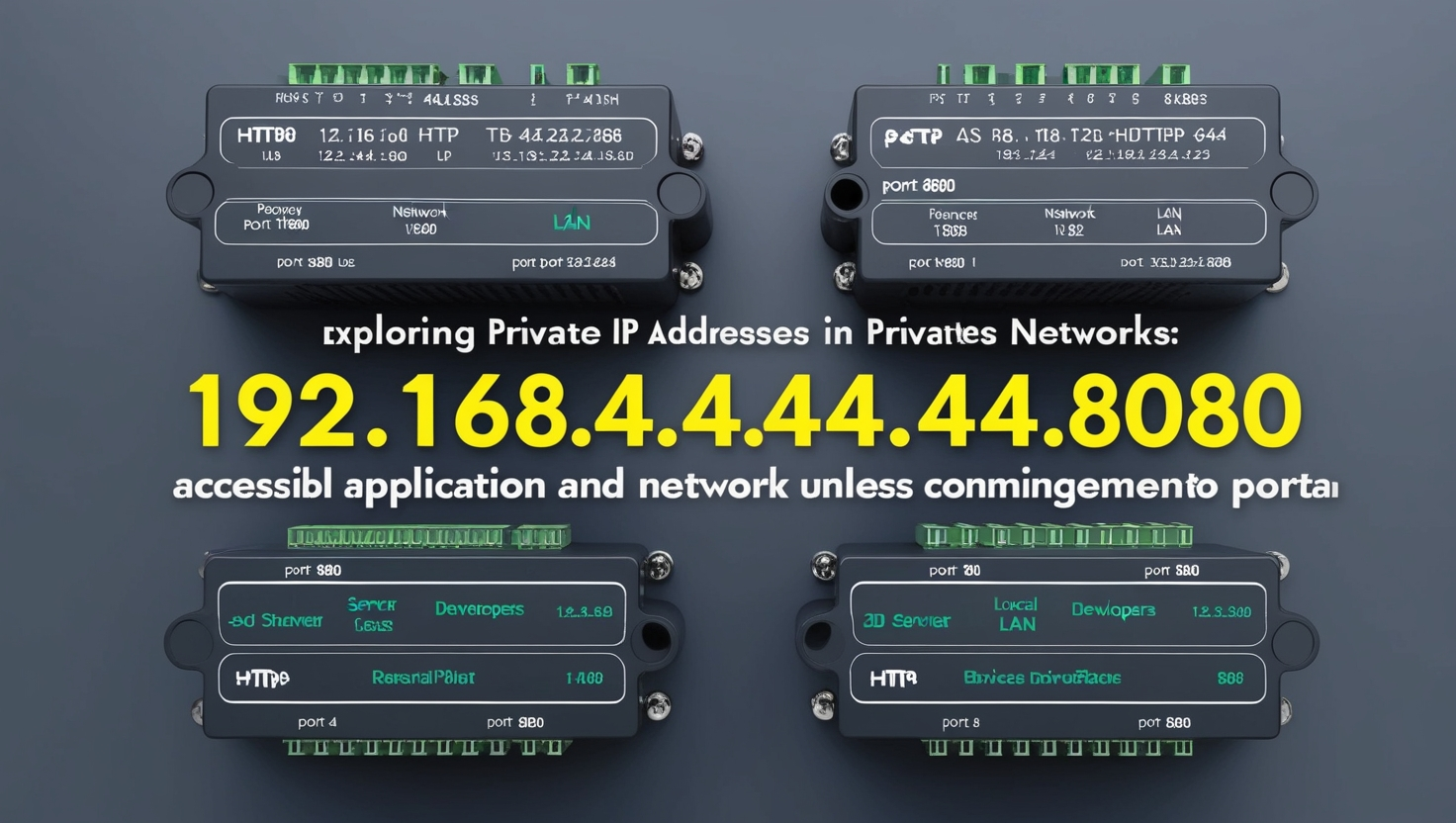Introduction
The address 192.168.44.44.8080 combines a private IP address and a specific port number, commonly used within local networks to access web-based applications or administrative tools. Being part of the reserved 192.168.x.x range, 192.168.44.44.8080 is not accessible from the internet unless configured for external access. Port 8080 is widely associated with HTTP-based services, making it a popular choice for testing, development servers, and device management portals. Whether hosting a web server or an application, this often plays a critical role in local network environments.
Understanding the Role of 192.168.44.44.8080
The address 192.168.44.44.8080 is a private IP with a specific port commonly used for hosting local services. Devices in a local area network (LAN) rely on such addresses for internal communication. The port 8080 is often chosen for HTTP-based applications or development environments. This address ensures resources are accessible only within the network unless otherwise configured. It plays a vital role in securing local access while maintaining functionality.
Importance of Port 8080 in 192.168.44.44.8080
Port 8080 in the context of 192.168.44.44.8080, acts as an alternative to the standard HTTP port 80. It’s preferred for applications that require distinct access points without interfering with other services. Using port 8080, developers and network administrators can isolate specific services. This combination is beneficial for testing environments or web servers in LANs. Its flexibility makes 192.168.44.44.8080 a valuable resource in technical setups.
Local Applications Hosted on 192.168.44.44.8080
The address 192.168.44.44.8080 is commonly used to host web applications or admin panels on private networks. Applications like routers, IoT devices, or testing environments often rely on such configurations. Users access these services by typing the address in a browser, provided they’re connected to the same network. This ensures seamless management of local devices. Hosting services optimizes resource allocation within a LAN.
Security Considerations for 192.168.44.44.8080
When using 192.168.44.44.8080, it’s essential to ensure robust security configurations. Since it is a private IP, unauthorized external access is usually blocked by default. However, enabling external access requires firewalls and authentication measures to prevent breaches. Network administrators should also monitor traffic on port 8080 for suspicious activity. Ensuring secure usage of 192.168.44.44.8080 protects sensitive data and prevents misuse.
Common Use Cases for 192.168.44.44.8080
The combination of 192.168.44.44.8080 is widely utilized for various network-based applications. It might host an internal website, a development server, or an IoT configuration portal. This setup is widespread in corporate or testing environments where local access suffices. Its flexibility allows the simultaneous operation of multiple services without conflicts. Leveraging 192.168.44.44.8080 simplifies resource management in private networks.
How to Access 192.168.44.44.8080
To access 192.168.44.44.8080, users need to be connected to the same local network. Typing the address in a browser will lead to the hosted service or admin panel. Ensure that firewalls or network restrictions don’t block the request. If authentication is required, proper credentials must be provided. Accessing 192.168.44.44.8080 ensures direct interaction with network-hosted applications.
Development Server Capabilities of 192.168.44.44.8080
The address 192.168.44.44.8080 is popular among developers for hosting and testing applications locally. Port 8080 provides a non-intrusive platform, ensuring that other standard services remain unaffected. This address allows developers to deploy and debug applications efficiently within their network. Its reliability makes 192.168.44.44.8080 an ideal solution for testing environments. Developers often prefer it for its simplicity and isolation.
Troubleshooting Issues with 192.168.44.44.8080
When facing issues accessing 192.168.44.44.8080, several factors should be checked. Ensure the hosting device is active and connected to the network. Verify that port 8080 isn’t blocked by firewalls or security software. Network configurations, like IP conflicts, can also cause disruptions. By addressing these factors, smooth access to 192.168.44.44.8080 can be restored. Regular monitoring prevents recurring problems.
Devices Utilizing 192.168.44.44.8080
Many network devices and applications use 192.168.44.44.8080 for internal operations. Routers, IoT hubs, and smart devices often assign this address to their admin interfaces. This ensures functionality within a controlled network environment. The port 8080 enables these devices to maintain distinct and conflict-free services. Utilizing 192.168.44.44.8080 allows seamless communication across various devices in a LAN.

Advantages of Using 192.168.44.44.8080
The use of 192.168.44.44.8080 in networks offers numerous benefits. It provides a secure, isolated platform for hosting services. Using port 8080 avoids interference with critical applications running on standard ports. This setup ensures reliability, scalability, and ease of management in private networks. Its flexibility makes 192.168.44.44.8080 a preferred choice for network administrators and developers alike.
Conclusion
192.168.44.44.8080 is a powerful tool in private network environments, enabling secure and efficient access to hosted services. Combining the private IP 192.168.44.44 with port 8080, it is widely used for applications like development servers, administrative portals, and device management. Its flexibility allows multiple services to coexist without conflict, while its private nature only ensures restricted access to authorized users. Proper configuration and security measures are crucial to maximize its potential while preventing unauthorized access. Ultimately, 192.168.44.44.8080 is essential for maintaining streamlined operations in modern networks.
READ MORE: itsoftedge.com
